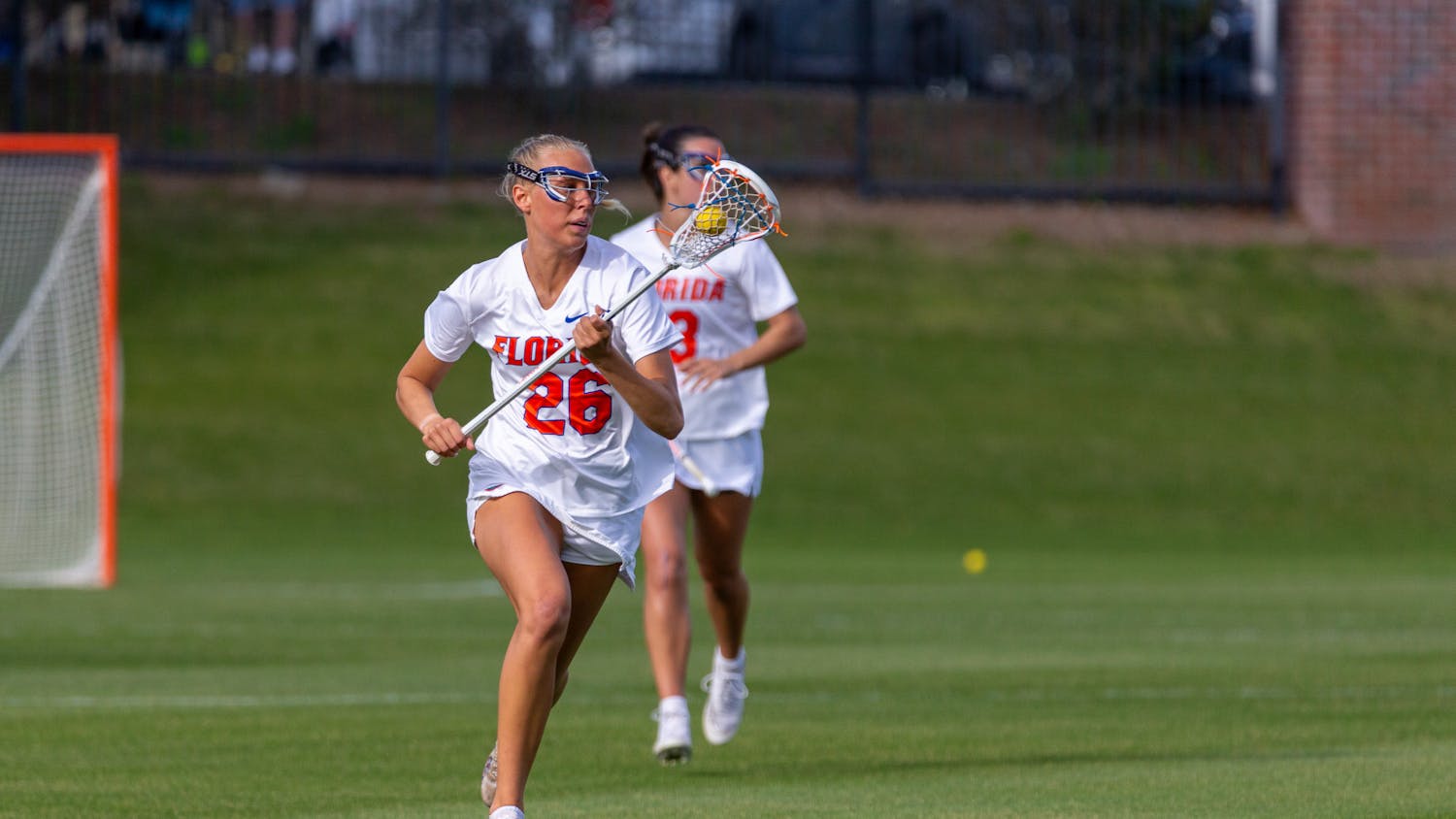Editor's Note: This is the first of a three-part series profiling Gainesville's diverse religious community.
He sits, then stands, facing Mecca. He kneels, leans his forehead to the carpet, which is green and striped with beige. From time to time, he thumbs through a Quran, the Islamic holy book.
Mohammad Haider spent his Saturday evening at the Islamic Center of Gainesville, mostly in prayer.
After about 20 minutes of solitary worship, he discusses scripture and then sings the evening call to prayer, which is broadcast throughout the building and into the back parking lot by a network of speakers.
"When we pray together, we have to consider the old and the sick, who may not be able to go for a long time," Haider said. "But when we pray alone, we can take as long as we like."
Said to be in his 60s, Haider stands out in a group mostly made up of men under 30, most of whom are connected to UF.
On Friday afternoon, Zubair Zafur, a member of UF's Islam on Campus, prepared for Jum'ah, or weekly service, at the Center. About 100 to 120 people attend Friday prayer at the Center every week. The largest attendance each year is Eid al-Fitr, "the festival of the breaking fast" at the end of Ramadan.
The Center, which is a mosque, is divided in two, one entrance and worship area for women and another for men. This prevents distraction during worship, according to Mohammed Suliman, a UF student who attends the Center.
After removing his sandals, Zafur sat on the carpeted floor of the worship area facing the khateeb, who gives the sermon, along with about 40 other men, only two of whom were seated in chairs.
The role of khateeb is usually filled by an imam, a Muslim religious leader, but in Gainesville khateebs are often respected Muslims with no official title. It is difficult to keep an imam because the student population cycles through every four years, Zafur said.
In Friday's sermon, the khateeb spoke about the Islamic concept of personal responsibility and how it differs from the Christian viewpoint.
A core concept of Islam, some say the most important, is the "oneness of God," or Allah in Arabic. To Muslims, Jesus was a prophet, but not divine, as taught in Christianity.
"No prophet is responsible for our deeds," the khateeb said, while standing behind a lectern bearing the Quran's first two pages in Arabic calligraphy.
In Islam, when a Muslim stands judgment, he or she is directly responsible for all of their deeds, good and bad, he said.
"When reading the Quran repeatedly, the message is 'you are responsible for yourself,'" he said.
The teaching of personal accountability is often paired with personal responsibility. Islam teaches that Muslims should help those in need, regardless of their faith, said Asad Patwary, who attends the Center.
Following the service, Zafur was taken aside by a Muslim brother and asked for assistance.
Zafur drove the man about eight blocks to Gainesville Lodge on West University and rented him a $45 room for the night.
"Sometimes I worry about making ends meet," Zafur said. "But every time I'm asked for help I give it, and everything turns out at the end of the month."
Islam teaches that those who are generous are rewarded both in this life and the next, he said.
Patwary had advice for people interested in learning more about Islam and Muslims.
"Just come yourself and question with the curiosity you have," he said. "Just have respect for the place and have an open mind."





